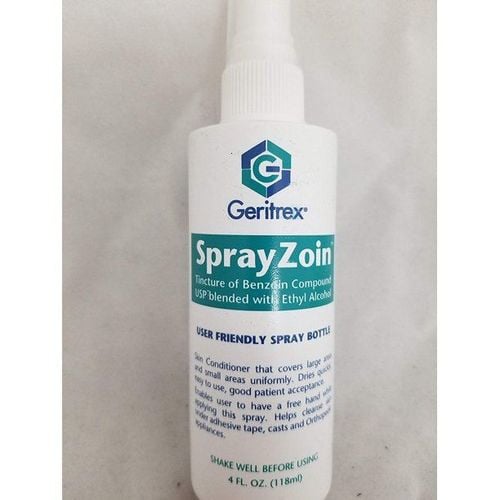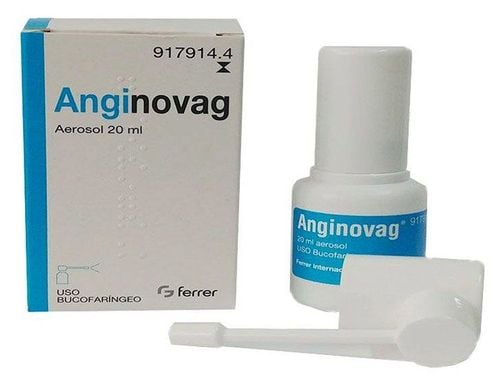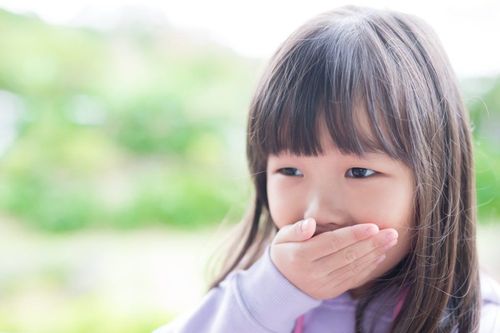This is an automatically translated article.
The article was professionally consulted by Dr. CKII Nguyen Van Thai - Department of Medical Examination & Internal Medicine - Vinmec Danang International General HospitalAcute laryngitis is a condition in which the larynx mucosa is damaged by bacterial and viral infections, often seen in young children in the cold season. To better understand the treatment of laryngitis in children as well as how to take care of children when they have the disease, please refer to the article below.
1. Definition of acute laryngitis
Acute laryngitis is inflammation of the lining of the larynx that lasts less than 3 weeks. Acute laryngitis has many causes and clinical manifestations are also very different, depending on the cause, and the age of the disease is classified: Acute laryngitis in children, acute laryngitis in adults but often more common in children.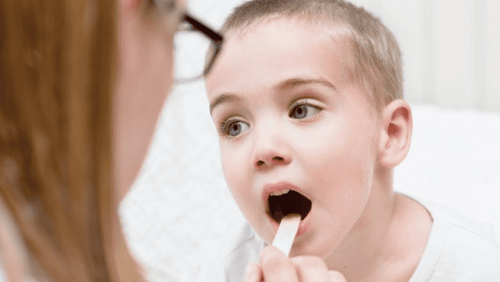
2. Causes of acute laryngitis
Common pathogensViruses are: Influenzae (influenza), APC,... Bacteria: S.pneumoniae (pneumococcal), Hemophilus influenzae. Favorable conditions
After a period of upper respiratory tract inflammation : Nasopharyngeal disease, lung disease, pharyngeal tonsil disease, VA in children. Using a strained voice: Talking a lot, shouting, singing loudly,... Reflux of the pharynx, larynx. Allergy.
3. Symptoms of acute laryngitis
Difficulty swallowing: Loss of appetite, salivation (common in epiglottitis). Hoarseness: May be mild to loss of voice. Shortness of breath. The disease usually occurs at night, starting with flu symptoms, laryngeal dyspnea occurs gradually and has typical signs within a few hours. Other symptoms may be incomplete: High fever, chronic pharyngitis, cough, wheezing breathing.
Acute laryngeal dyspnea is divided into 3 levels:
Mild: Cough, hoarseness, only hissing sound when crying. At this stage, the child is not hospitalized, but parents should take the child to the doctor for instructions on how to monitor and treat it at home. Level Moderate (Typical laryngeal dyspnea): The child stridor when lying still, dyspnea, inspiratory, rapid breathing. When noticing these symptoms, parents need to take the child to the hospital for treatment. Severe level: Child wheezing when lying still, severe dyspnea, agitated, struggling, cyanosis. At this time, the child has a life-threatening respiratory obstruction if not treated promptly.
4. How to treat and prevent acute laryngitis in children
Principles of treatment For young children, acute laryngitis can cause severe breathing difficulties, so it is necessary to be examined and monitored by a doctor. Mild episodes of laryngospasm usually resolve within three days with careful home care and monitoring.
Reassure a scared child. Create a quiet environment for children to rest, abstain from talking, crying, and exertion.
Give children plenty of warm water to drink, avoid using stimulant spices such as chili and pepper in food processing. Give your child the medicine exactly as directed by the doctor. At the same time supplementing nutrition to increase resistance for children.
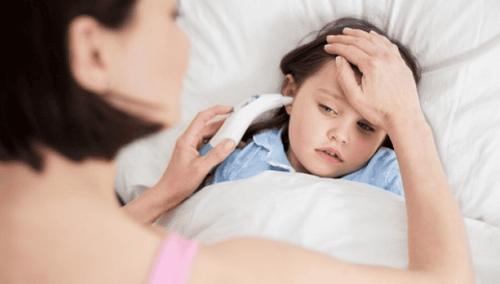
When taking care of children with acute laryngitis, it is necessary to monitor the progression of the disease to promptly detect signs of worsening. Take the child to a medical facility when one of the following signs is present:
Progressive wheezing, appearing when the child is still. There are signs of difficulty breathing, irregular breathing, rising and falling of the nose. Children are very tired. Babies open their mouths when they breathe and salivate. High fever over 39 degrees C. Or laryngeal dyspnea has not subsided after 3 days. Prevention:
Here are some ways to help prevent acute laryngitis in infants and young children:
Keep children warm in the cold season. Avoid direct contact with people who are suffering from upper respiratory infections, flu, ... Nutritional supplements help children increase resistance. When detecting acute laryngitis in children, it is necessary to closely monitor to prevent worsening. If you need to consult and visit Vinmec Hospitals of the national health system, please book an appointment on the website (vinmec.com) for service.
Please dial HOTLINE for more information or register for an appointment HERE. Download MyVinmec app to make appointments faster and to manage your bookings easily.





